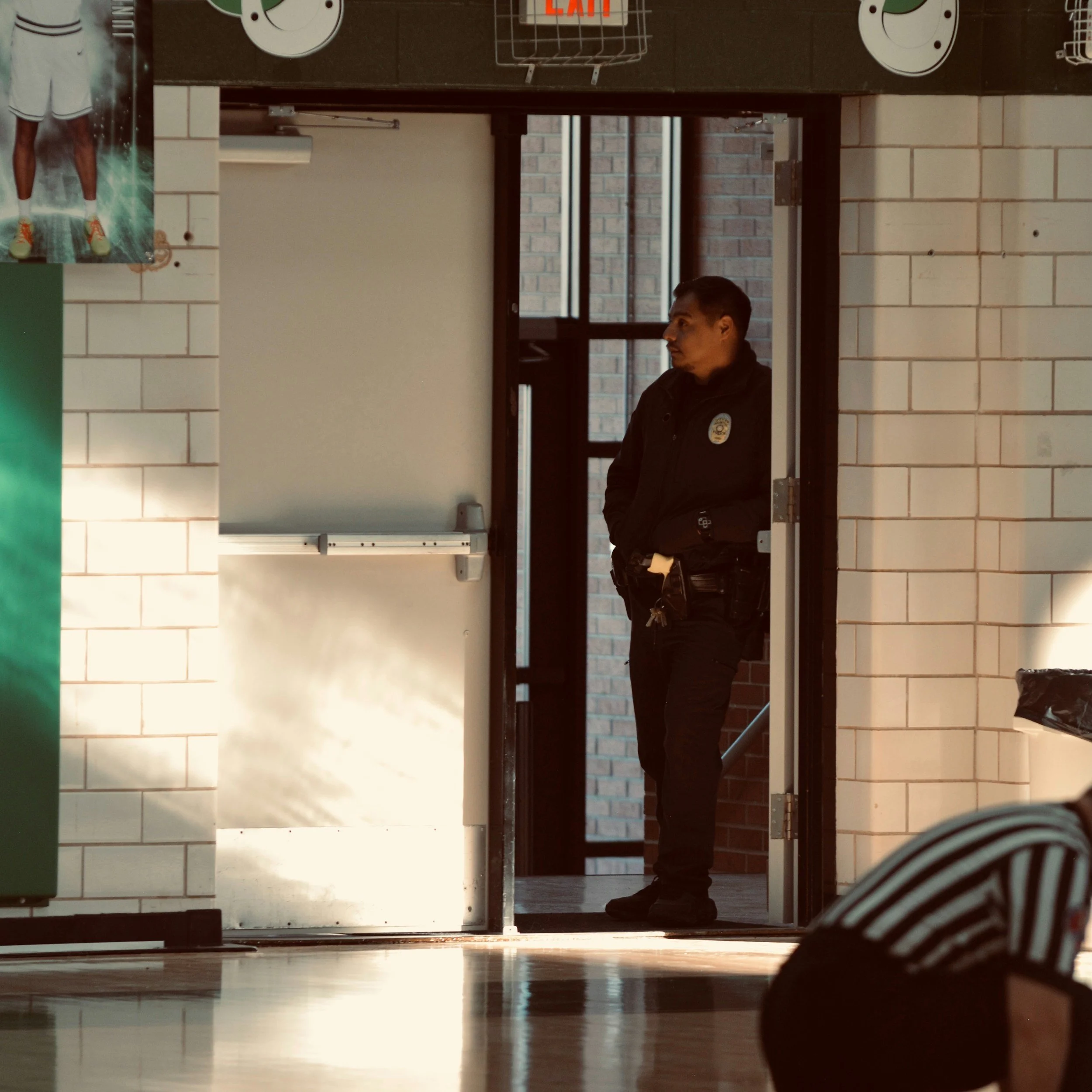A Police Officer's View: 3 Critical Things Every School Must Know Before First Responders Arrive
Essential school safety insights from a law enforcement perspective on emergency response preparation
For years, my perspective on school safety was from the driver's seat of a police car, responding to emergency calls. When first responders arrive on campus during an emergency, our goal is to resolve the situation as quickly and safely as possible. But what happens in the minutes before we get there, and how the school is prepared, can dramatically change the outcome.
Now, as a school security consultant, I can share the "view from the squad car" to help you be better prepared. Here are three critical things we in law enforcement wish every school administrator knew about emergency response preparation.
1. Clear Campus Numbering Systems Save Lives
When we get a call about "a broken window by the gym," we have no idea where that is. But a call about "a problem at exterior door number 14 on the northwest corner" tells us exactly where to go.
Numbering all your exterior doors and having a simple, labeled map of your campus available is one of the most valuable things you can do for first responders. We can't help you if we can't find you.
Essential Campus Numbering Best Practices:
Number every exterior door with large, visible signage
Create detailed campus maps with door numbers clearly marked
Share maps with local law enforcement during non-emergency planning sessions
Train staff to use door numbers when calling for help
Post maps in key locations like the main office and security desk
This simple school emergency preparedness step can reduce response time by critical minutes during a school crisis.
2. Designated Staff Liaison for First Responders
The first officer on scene has one priority: moving toward the problem. They do not have time to find the main office or navigate unfamiliar hallways.
Designate a staff member to meet first responders outside, away from the immediate danger zone. This person's only job is to provide a quick briefing and point us in the right direction. This simple step can save precious, life-saving seconds.
First Responder Liaison Protocol:
Assign specific staff members to this role in your school emergency plan
Train liaisons on what information to provide quickly
Establish meeting points away from the incident location
Practice handoff procedures during school safety drills
Ensure backup liaisons are always available
This school safety protocol ensures seamless coordination between school staff and emergency responders.
3. Absolute Lockdown Procedures Are Non-Negotiable
When we establish a perimeter, the last thing we need is unexpected movement. A lockdown means everyone is locked down. We have seen well-meaning parents rush to the school, or even staff members leaving a building to "check on something."
An unexpected person in a crisis zone can be mistaken for a threat, creating a tragic situation. Your communication to parents to stay away is as critical as your communication to staff to stay put.
Critical Lockdown Communication Elements:
Clear parent notifications explaining why they must stay away
Staff training on absolute lockdown procedures
Social media messaging to prevent rumors and unauthorized arrivals
Coordination with local media to reinforce stay-away messages
Post-incident reunification procedures at designated off-site locations
Effective school lockdown procedures protect everyone involved and allow first responders to work safely and efficiently.
Why School-Police Partnership Matters for Safety
Your school and local law enforcement are partners in safety. The more you can do to prepare your campus from a first responder's perspective, the more effective we can be when you call for help.
School emergency preparedness isn't just about having a plan—it's about having a plan that works seamlessly with police response protocols, fire department procedures, and EMS operations.
Professional School Safety Consultation Services
Our firm specializes in aligning your school's emergency procedures with the realities of police, fire, and EMS response. We help you see your campus the way we do, and close the gaps that could cost you in a crisis.
Our School Safety Services Include:
Campus security assessments from a law enforcement perspective
First responder coordination training for school staff
Emergency communication protocols that work with police procedures
Lockdown procedure optimization based on real-world response needs
Campus mapping and numbering systems design
Staff training programs on emergency response coordination
Why Choose Our School Security Consulting?
Real law enforcement experience in school emergency response
Proven track record of improving school safety preparedness
Customized solutions for your specific campus layout and needs
Ongoing support and training for your staff
Compliance assistance with state and federal safety requirements
Don't wait for an emergency to discover gaps in your school safety plan. Contact our team today to schedule a comprehensive school security assessment and ensure your campus is prepared for effective first responder coordination.
Ready to improve your school's emergency response preparedness? Contact our experienced team of former law enforcement professionals to develop comprehensive safety protocols that work seamlessly with first responder procedures.
